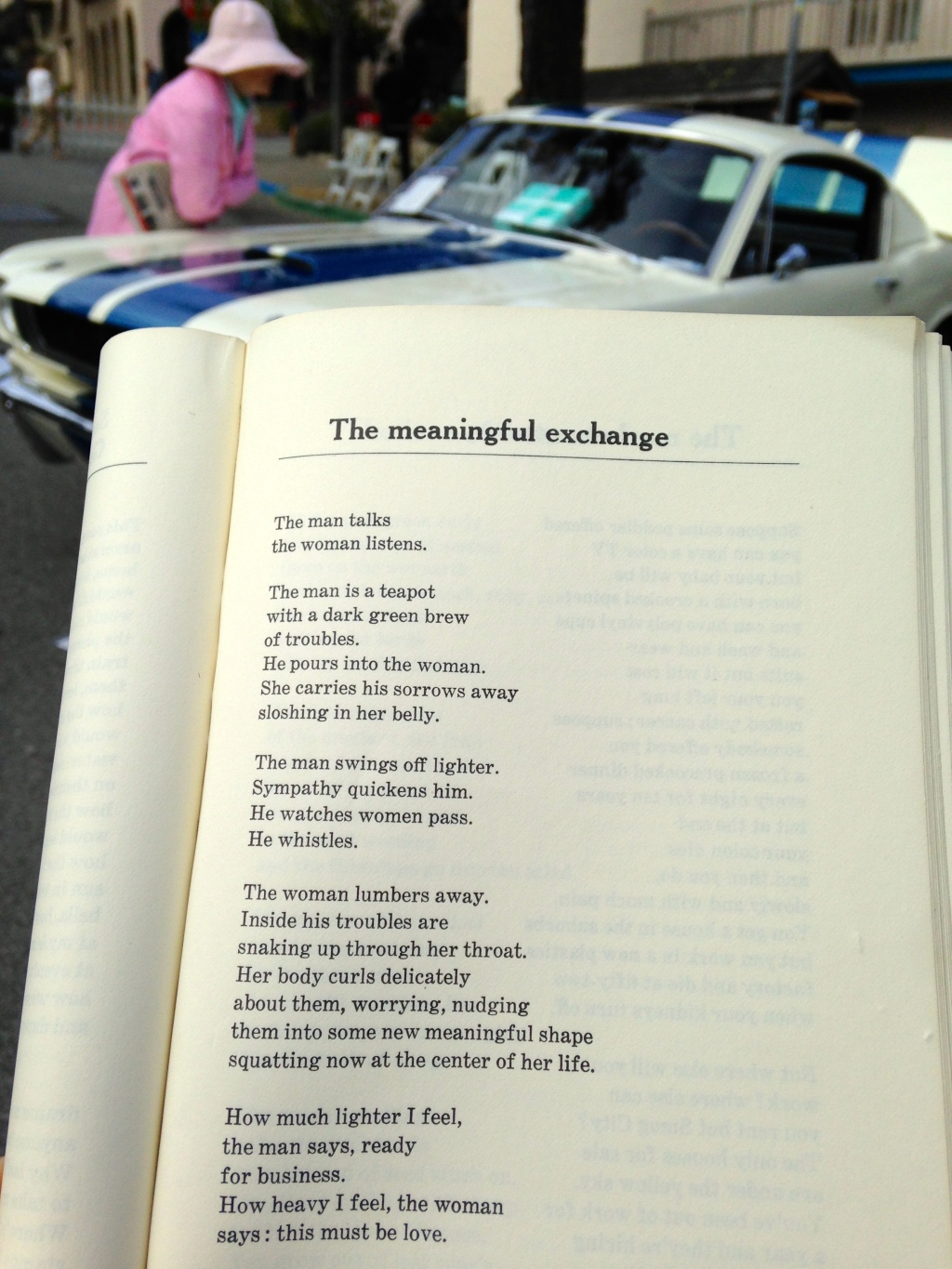 For those who favor such categorizations, Marge Piercy’s poetry can easily fall under the label “Feminist Poetry.” As such, her poetry wouldn’t be an obvious first choice to bring along during the famous Carmel Car Week in August. For some reason, though, her book “The Twelve Spoke Wheel Flashing” ended up in my carry on, and I read her poems while accompanying my husband during the car shows. I will share a few of the pictures I took of the poems, framed by classic automobiles, starting this week.
For those who favor such categorizations, Marge Piercy’s poetry can easily fall under the label “Feminist Poetry.” As such, her poetry wouldn’t be an obvious first choice to bring along during the famous Carmel Car Week in August. For some reason, though, her book “The Twelve Spoke Wheel Flashing” ended up in my carry on, and I read her poems while accompanying my husband during the car shows. I will share a few of the pictures I took of the poems, framed by classic automobiles, starting this week.
The poem pictured to the right is an excellent example of Piercy at her best, when she is clear, thorough and cutting. Below is the full text of the dystopian piece.
The Meaningful Exchange
The man talks
the woman listensThe man is a teapot
with a dark green brew
of troubles.
He pours into the woman.
She carries his sorrows away
sloshing in her belly.The man swings off lighter.
Sympathy quickens him.
He watches women pass.
He whistles.The woman lumbers away.
Inside his troubles are
snaking up through her throat.
Her body curls delicately
about them, worrying, nudging
them into some new meaningful shape
squatting now at the centre of her life.How much lighter I feel,
the man says, ready
for business.
How heavy I feel, the woman
says: this must be love.

Leave a comment